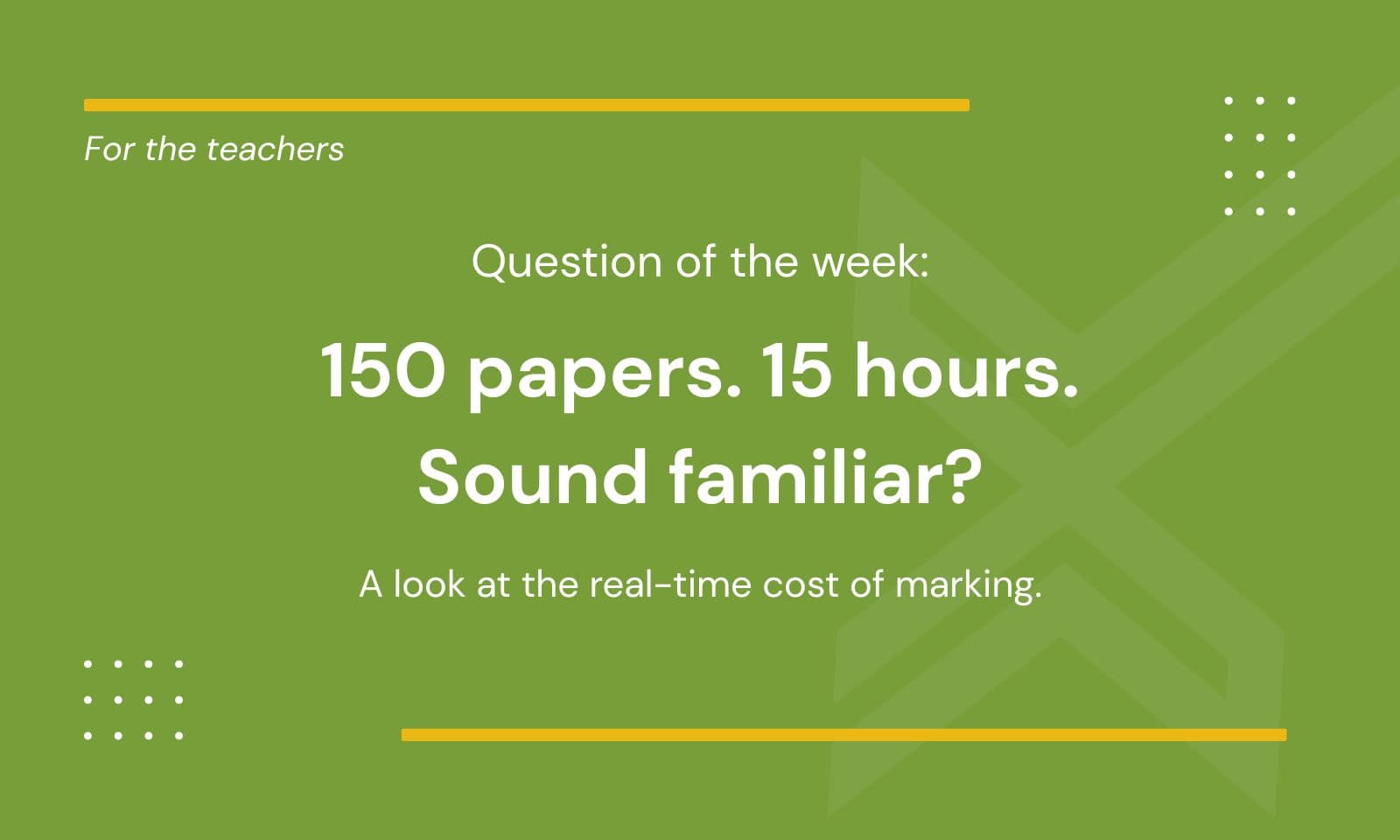The Weekend Thief: A Look at the Real-Time Cost of Marking GCSE Maths Papers
It's 3:30pm on a crisp Friday in late September. The final bell rings, and as James, one of the Maths teachers at a neighbourhood high school, walks out of the school gates, he can almost feel the weight of the week lift. But his bag, heavy on his shoulder, tells a different story. It's not just carrying books; it's carrying the 150 GCSE mock papers that have become the weekend thief.
He does the grim calculation in his head. Even at a brisk 6 minutes per paper, that's 900 minutes of marking. 15 solid hours. That's the football game he'll miss, the family dinner he'll be late for, and the quiet moments of recharge that will evaporate. This isn't just lost time; it's the slow erosion of a work-life balance, and it's a direct path to burnout.
The Problem: The Anatomy of the Marking Grind
Let's be honest about where those 15 hours actually go. The "grind" of marking isn't one task, but a dozen repetitive, mentally draining actions stacked on top of each other:
- Deciphering the Work: Trying to follow a student's messy or unstructured reasoning.
- The Forensic Check: Meticulously applying 'follow through' marks for an error made on step one.
- The Tally: Manually adding up dozens of small marks for each paper, with the constant risk of a simple addition error.
- The Data Entry: Transferring every single one of those final scores into a departmental spreadsheet.
This isn't the high-value work of a teaching professional; it's the exhaustive labour that drains energy and steals time.

Marking workload illustration
The Traditional Fix: Smart Tactics in an Unwinnable War
As a dedicated professional, James has an arsenal of tactics to fight back. He uses time-boxing to prevent marking from taking over an entire day. He tries batch marking, focusing on one question at a time across all papers. He knows when to focus feedback only on the most critical questions.
These are the essential methods of an expert trying to manage an overwhelming task. They are valiant, smart, and necessary for survival. But let's be clear: they are coping mechanisms, not solutions. They are strategies for a war of attrition against an enemy that always comes back. The thief still shows up every marking season; these tactics just help you negotiate what it takes.
The New Solution? Automate it.
What if the goal wasn't just to manage the workload, but to eliminate the most draining parts of it entirely?
The true craft of an educator isn't in the mechanical grind of checking answers; it's in the expert analysis of the results. It's understanding why students made errors and planning how to fix them. By automating the grind, you free up your mental energy and time to focus on the craft.
This is what AI marking is built for. The platform handles the repetitive, time-consuming tasks with perfect precision:
- It reads and assesses every line of working.
- It flawlessly applies the mark scheme, including complex 'follow through' marks.
- It adds up every score instantly and accurately.
- It auto-populates a data dashboard with granular, question-level insights.
Instead of a spreadsheet of scores, James gets an instant analysis of cohort-wide misconceptions. The 15 hours of manual labour is gone. In its place are a few hours of high-impact, professional work: analysing the data and planning the lessons that will make the biggest difference.
Imagine a weekend where James's bag is light again. Where he's not just a teacher, but a parent, a friend, and a person who has time to recharge. That's not just better for him; it's better for his students.
Psst… What if you could give your teachers back their weekends? ExamGPT handles the marking grind, so your team can reclaim their time and focus on what truly matters: inspiring students. See how we do it here.
